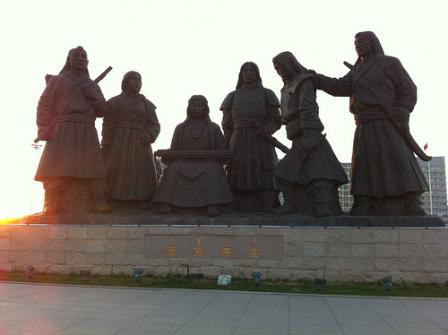China's Ghost Towns:
Over-development in the
Real Estate Market
| 22 August 2011. Some say that the best expression of excess capacity and overdevelopment in China is its real estate market. With nominal interest rates going at a pittance, stringent capital controls and volatility in China's equity markets, there seems to be no real alternative outlets for the nation of savers (China saved 50 percent of its GDP in 2010) and it is therefore no huge wonder that investors have turned to real estate as investment options. Click here to continue reading. |
 |
| S |
Negative real interest rates for savers are at the heart of what many believe is a burgeoning property bubble. With nominal interest rates going at a pittance, stringent capital controls and volatility in China's equity markets, there seems to be no real alternative outlets for the nation of savers (China saved 50% of its GDP in 2010) and it is therefore no huge wonder that investors have turned to real estate as investment options.
Away from the bright lights of glitzy urban centers like Beijing and Shanghai, newly built city centres, such as those in Zhengzhou and Tangshan, have popped up on maps, in a race to join in the building boom.
Regards,
akshintala.Dharmendra
http://nsemantra.blogspot.com/
Subscribe to:
Post Comments (Atom)
0 comments:
Post a Comment